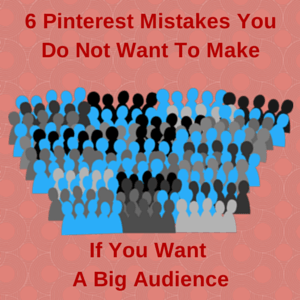Since third-party cookies are crumbling, it’s time to ask if the days of ads following you everywhere are numbered.

Third-party cookies have become the black sheep of digital advertising. Apple’s Safari browser has blocked them. Google’s Chrome — now becoming an arbiter of ad quality — makes it relatively easy to avoid them. And some ad blockers can’t tolerate them.
Plus, GDPR will hit them hard next year in Europe and possibly elsewhere (since European Union citizens are everywhere).
Third-party cookies are utilized for various kinds of digital advertising, but one of the most basic is retargeting.
Let’s say you look at a product page for red sneakers at an online retailer’s site. Perhaps you actually add the sneakers to your checkout cart but leave them unpurchased before you browse to another site.
An ad for those sneakers could follow you for days as you visit site after site. Possibly even if you ended up buying them.
So, if third-party cookies are crumbling, are their bottom-rung implementations — retargeted ads — in the process of fading out?
‘Tech guys are smart’
No, says George Levin, CEO of ad tech firm GetIntent. Even if third-party cookies dwindle to a few crumbs, he said, retargeted ads will survive because “the tech guys are smart.”
Levin also isn’t too worried about GDPR outside of Europe. And there are non-cookie ways to track you. For instance, there are server-side “digital fingerprint” techniques to identify you by your unique constellation of IP address, device specs, browser settings and installed plugins, among other characteristics.
Or, if you’re logged into a site that participates in an extended network across apps and other sites, like Facebook or a Google property, you can be tracked.
In other words, Levin says, you are still trackable from one site to another even if third-party cookies fade.
IDC analyst Karsten Weide has a different take on the subject. He thinks retargeting is going to change, but that it’s a separate issue from the fate of cookies.
First, he thinks “cookies are going away.”
His reasoning: cookies don’t work well on mobile, and mobile is increasing its role as the dominant computing environment. Also, the aforementioned digital fingerprinting is becoming more reliable.
‘Very primitive’
So, user tracking will continue to evolve beyond cookies, Weide says, but retargeting will evolve into something else. The reason: while retargeting is “useful and effective, [it’s] very primitive.”
It follows you with an ad because of a single action you took, like looking at a product page or adding a product to a cart without completing the purchase. It “only knows what you just looked at,” he pointed out.
Suppose he went to a website to buy tickets to see “Rigoletto,” the opera, in New York City, Weide suggested. Retargeting only knows that single bit of data, resulting in an ad for that performance that follows him for days.
But layered targeting can add location and online behavior, among other things. It could determine that Weide was only temporarily in New York and spends most of his time in California. Additional data could avoid wasting an ad buy to follow Weide for a New York event when he’s returned to California.
The other reason Weide believes that the days of retargeting as such are limited is the rise of Alexa and her friends.
Intelligent voice agents — including Amazon’s Alexa, Google Home and its Assistant, Microsoft’s Cortana and others — are becoming the way we will interact with computing systems in many cases. Ads that follow you around are not well suited for non-screen interactions.
Imagine that you ask Google Home Assistant to find the best deal on Nike red sneakers. The voice finds the best price in your size at the site of a shoes-only retailer in your state, but, at the last minute, you decide against buying them.
How annoying will it be if the Google Assistant keeps reminding you about that deal on Nike red sneakers over the next three weeks? Retargeting works when it’s somewhere on the page, not when it’s nagging you by voice.
The coming realization
But Chris Olson, CEO of ad tech consultancy The Media Trust, thinks retargeting will change mostly because retailers will realize they’re losing money and their customer relationships.
Right now, he says, retailers don’t understand that every time an outside ad is delivered to a customer on their site, there are dozens of ad tech vendors that are dropping cookies or other code on that visitor’s computer, or who will get access to that data. So that retargeted ad from the retailer delivers info to dozens of others in the ad ecosystem.
Imagine, he told me, that a customer who looked at red sneakers in a physical shoe store then walked out and went to other stores. But, as she walked down the street and entered each of the other stores, strangers shouted behind her: “She’s interested in buying red sneakers!”
Eventually, Olson argues, online retailers are going to “pull back the curtain” and realize that all these “strangers” are tracking a customer’s product interest she originally indicated on their sites.
They will discover this, he suggests, because of such drivers as privacy compliance laws, GDPR, concerns about malware and the push toward greater transparency in the ad ecosystem.
But most retailers will eventually understand, Olson said, that her initial interest in those sneakers is relationship data that belongs to that first retailer. That retailer may choose to follow her with an ad for those sneakers, but her interest in red sneakers might be limited to that retailer’s follow-through instead of getting blasted across the ad universe.
In other words, modern retargeting is trailing a murky ad ecosystem — occupied by dozens of data vendors and ad purveyors — instead of simply being an extension of the retailer.
And, eventually, the retailer will reassert its right to a relationship with the person who walked into their store, over other players in the ad ecosystem who are grabbing a portion of that customer data.
That, Olson says, is when retargeting will turn into something else.
Marketing Land – Internet Marketing News, Strategies & Tips
(81)








